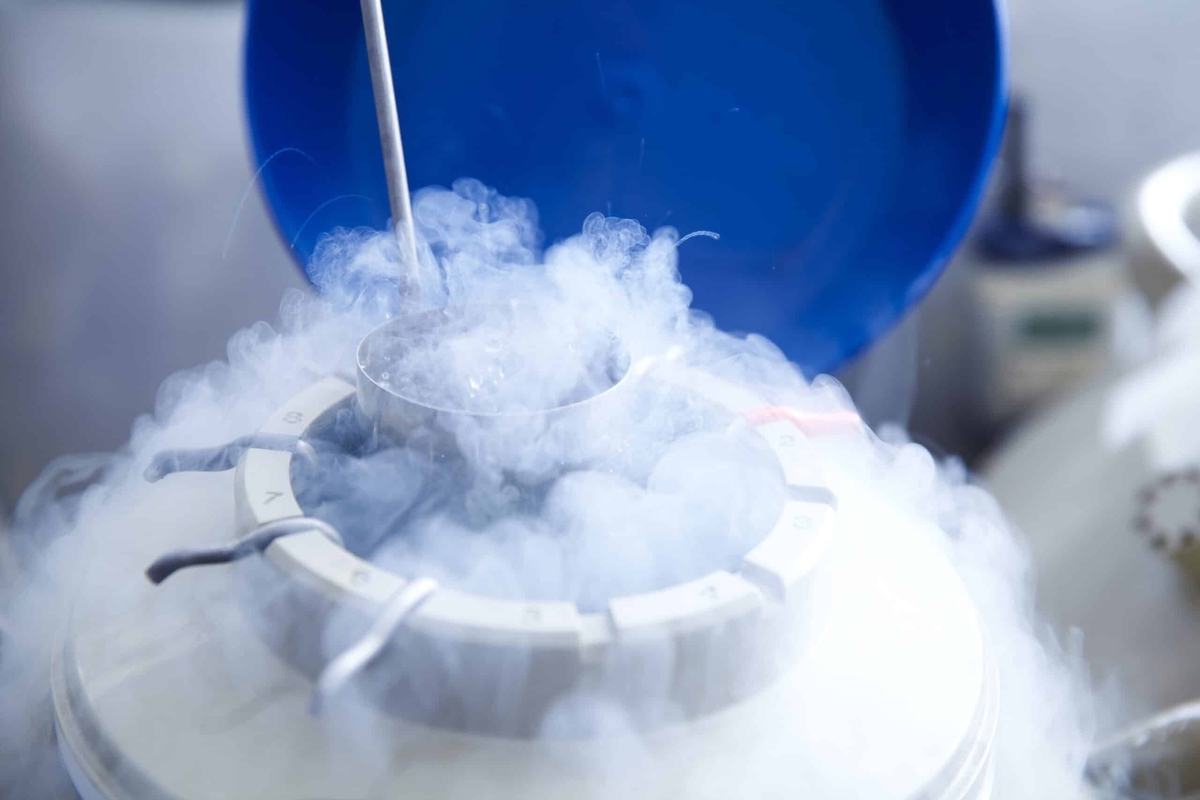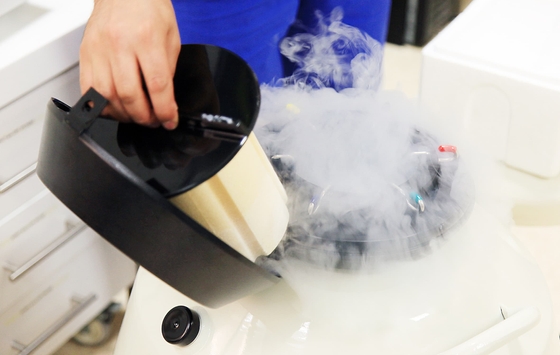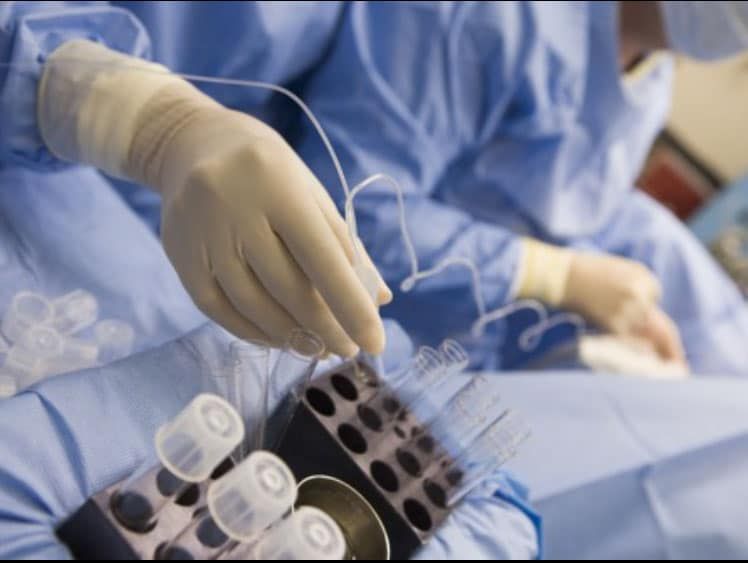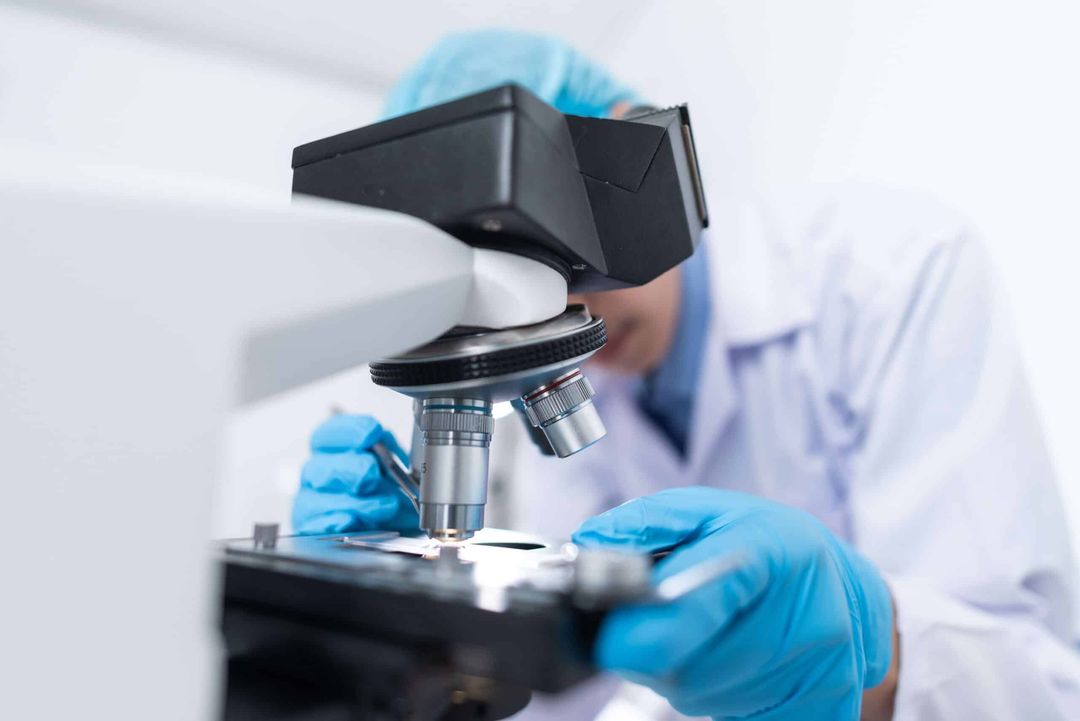Egg Freezing Perth
Egg Freezing
Welcome to Fertility North, a leading fertility clinic in Perth, Western Australia. For over 10 years, we have provided egg freezing services, and other advanced fertility preservation services to individuals and couples. If you are interested in freezing your eggs, or just want to know more about the procedure, our fertility specialists are here to support you in any way they can.

What is Egg Freezing?
Egg freezing (Oocyte Cryopreservation) is one of several fertility services we provide to those who wish to preserve their fertility, extend their reproductive window, and gain more flexibility and control over family planning. This procedure, performed at our clinic by experienced fertility doctors, involves retrieving and freezing multiple eggs for future use. When you’re ready, these eggs can be thawed and fertilised in our lab using ICSI, creating embryos that can then be transferred to the uterus with the goal of achieving a successful pregnancy.
Who is Egg Freezing suitable for?
While not a solution for everyone, egg freezing can be particularly beneficial for those facing circumstances that may impact their egg quality and quantity or pose risks to their reproductive health. If you’re considering this procedure, here are some common situations where it may be suitable:
People/Patients Delaying Childbearing
If you’re waiting to have children later in life, freezing your eggs allows you to keep your options open, ensuring you have the opportunity to start or grow your family when the time is right.
People/Patients undertaking medical treatments
This includes chemotherapy and/or radiotherapy, as well as gender transition. These treatments can pose a risk to fertility, but by storing your eggs or ovarian tissue prior to undertaking treatment, you are able to preserve the possibility of fertility.
Fertility North can offer expedited treatment for oncology patients who need to embark on life-saving therapies quickly, and in these circumstances, Medicare rebates and discounted storage fees may apply.
People/Patients with a Family History of Early Menopause
For those who have a family history or a known risk of premature menopause, fertility preservation offers the ability to collect and store eggs while they are still being produced.
People/Patients at risk of Ovarian Failure
Some patients may be at risk of premature ovarian failure (ie – loss of ovarian function before the age of 40). Fertility preservation offers these patients the opportunity to store their eggs before ovarian failure may occur.
How much does Egg Freezing Cost?
The costs associated with egg freezing will depend upon your individual circumstances, but in simple terms, fees are incurred for the following:
1. Planning and management of your cycle.
2. Medication costs.
3. The collection of your eggs in a hospital theatre or procedure room. If done in a hospital theatre as a day procedure, you will incur additional costs associated with the hospital admission and anaesthetic.
4. The process of vitrifying (freezing) your eggs.
5. Annual storage fees to maintain your eggs in our secure storage facilities.
For more information regarding the costs associated with egg freezing in accordance with your individual circumstances, please contact our Administration team by calling the clinic on 08 9301 1075.
When Should You Freeze Your Eggs?
Under 25 years of age
While the quality of your eggs may be at their best at this point in your life, it is generally not a time that we recommend patients freeze their eggs. In fact, the majority of patients considering egg freezing in this age bracket will do so because of pre-existing health conditions and/or family history. We suggest you speak with one of our team for personalised advice.
Age 25 – 30
Between 25 and 30, for most people our egg quality remains high meaning this can be an ideal time to consider a proactive approach to preserving your fertility. This is a great time to seek specialist advice.
Age 31 - 38
The most common age that patients consider storing their eggs is their 30s. Beyond the age of 35, there is a vast amount of evidence shows that there’s a significant fall in female fertility. So, with that in mind, it’s really important to obtain personalised, specialist advice and make a plan to preserve your fertility.
If you’re aged between 35 and 38 and you know you would like your own family one day, but the time isn’t right just now, we do recommend you see a fertility Doctor to discuss the options available to you to preserve your fertility now and avoid the possibility of disappointment and heartache in the future.
Age 39+
By this age, the chance of natural conception falls to around 5% each month – due to the natural decline in egg numbers and quality with age. While egg freezing may still be an option, the likelihood of success will depend on your individual circumstances and you may require multiple treatment cycles to get enough. Time is precious if you’re in this age bracket, so we recommend you see one of our fertility doctors to discuss your options.

Egg Freezing Success Rates
The chance of a live birth from eggs frozen using vitrification is comparable to that from ‘fresh’ eggs typically used in IVF treatment. Two factors influencing the likelihood of having a baby from frozen eggs are:
- Your age at the time of egg freezing
- The number of eggs frozen
Currently, we expect the following success rates for egg freezing for a woman aged 35 or under:
- Egg Collection: On average, we would aim to collect 10-12 eggs.
- Vitrification and Storage: Around 80% of these would be suitable for vitrification and storage (7-10 eggs).
- Survival Rate Post-Warming: Approximately 90-95% of eggs are expected to survive the warming process (6-9 eggs).
- Fertilisation Rate: Approximately 50-80% of surviving eggs would fertilise (3-7 embryos created).
- Embryo Development: Approximately 80-90% of fertilised eggs would develop into embryos (2-6 embryos suitable to transfer or freeze).
- Pregnancy Chance per Embryo: Each embryo suitable to transfer or freeze would have a 20-35% chance of developing into a pregnancy.
Success rates for egg freezing decline for women over 35, so it’s advisable to preserve your fertility sooner rather than later. If you are over the age of 38, egg freezing might not be suitable. However, other options, such as the use of donor sperm, can be explored.
We always recommend speaking to a fertility doctor to understand if egg freezing or other fertility options are suitable for your specific circumstances.
Egg Freezing FAQs
How does the egg freezing process work?
The egg freezing process typically involves four main steps: controlled ovarian hyper-stimulation, trans-vaginal oocyte aspiration, oocyte vitrification and storage. Hormone injections are used to stimulate the ovaries and encourage the development of multiple eggs. Once mature, the eggs are retrieved through a minimally invasive procedure. They are then cryopreserved using a process called vitrification and stored until needed.
How long can eggs be stored?
In WA, there is no time limit placed on the storage of eggs. And we know from experience now that eggs can be stored for an extended period, even several years, without compromising their quality. It is important to consult with your fertility specialist about the storage timeline that suits your situation.
When is too late for egg freezing?
While there is no strict age limit for egg freezing, the procedure is generally more successful for women under the age of 35. This is because both the quality and quantity of eggs tend to decline with age. Nonetheless, it is crucial to discuss your individual case with a fertility specialist to determine the most appropriate course of action.
What is the success rate of egg freezing?
The success rate of egg freezing varies depending on factors such as age, egg quality, and the specific fertility clinic. Generally, younger people with higher-quality eggs have better chances of success. It is essential to discuss success rates with your fertility specialist to set realistic expectations.
How much does egg freezing cost?
The cost of egg freezing can vary depending on factors such as location, clinic, and any additional treatments or services required. It is best to consult with your chosen fertility clinic to obtain a detailed breakdown of the costs involved.
Please note that if you are freezing eggs before undertaking chemotherapy and/or radiotherapy for cancer treatment, Medicare rebates may apply.
Are there any risks or side effects associated with egg freezing?
As with any medical procedure, there may be risks or side effects associated with egg freezing. Some potential side effects include bloating, cramping, or mood swings from hormonal stimulation. Rare complications can include ovarian hyperstimulation syndrome (OHSS) or infection. It is essential to discuss the potential risks and side effects with your fertility specialist to make an informed decision. It is very important to note that freezing your eggs does not guarantee your future fertility. Despite the use of verified techniques by highly trained staff, the survival of frozen eggs cannot be guaranteed, nor can fertilisation or the development of embryos.
Can I use my frozen eggs with a sperm donor or surrogate?
Yes, you can use your frozen eggs with donor sperm or in conjunction with a surrogate, depending on your individual circumstances and preferences. Consult with your fertility specialist to discuss the available options and the most suitable approach for your situation.
How many eggs do I need to freeze?
This is a really difficult question to accurately answer, as the number eggs you might need to freeze to maximise your chance of success is different for everyone. It is quite normal that not all eggs collected will be suitable to freeze, not all eggs will survive the freezing and thawing process to be suitable to inseminate, and not all inseminated eggs will fertilise. It is normal to expect loss at each stage of the process.
On average, we expect that if 10 eggs are collected, 8 may be suitable to freeze, 7 may survive the freezing and thawing process for insemination, 5 may fertilise to become embryos, of which only 1 or 2 may be suitable for transfer or freezing. These numbers are estimates and will vary in accordance with your age at the time of freezing your eggs, as well as other factors including endometriosis and sperm quality. Your doctor will provide you with more information, relative to your individual circumstances.
Do I need to do IVF with my frozen eggs?
Yes, as a result of freezing your eggs, they must be inseminated via ICSI, whereby each suitable egg is injected with a single sperm to achieve fertilisation
Am I eligible for Medicare-funded treatment to freeze my eggs?
All oocyte freezing requires IVF services; for a treatment to attract a Medicare benefit, it is a requirement that patients seeking treatment have been diagnosed as ‘medically infertile’ at the time the services are employed. As a result, patients looking to freeze oocytes for fertility preservation, either for medical or social reasons, without a diagnosis of infertility, are ineligible for Medicare subsidised treatment. It is also currently prohibited by WA legislation for a patient to use their frozen oocytes in treatment, if when treatment occurs, they are not deemed infertile for medical reasons. (HRT Act 1991 Part 3, div. 2 s.23)
Medicare rebates and discounted fees do apply to those freezing sperm prior to undergoing gonadotoxic treatment. Please contact us to find out more.
Is egg retrieval painful?
The collection of eggs for freezing generally takes place as a day procedure in hospital during a process known as a transvaginal oocyte aspiration, or TVOA.
Following early-morning admission to hospital, a TVOA usually takes 15 to 25 minutes and is generally well-tolerated, with patients spending an hour or two in recovery before going home. Some patients report period-like discomfort and some spotting after a TVOA, but this is usually well-managed with over-the-counter pain relief such as paracetamol.
Can egg freezing impact the health of future children conceived using frozen eggs?
Egg freezing is done using a process known as vitrification, which has been in routine clinical use for many years now with no reports of obstetric or perinatal adverse effects. However, because this is still a relatively new technique, research outcomes and our own results continue to be closely monitored.
Can the egg retrieval process impact fertility?
The process of collecting and freezing eggs does not use any more eggs than what would have normally been lost due to natural attrition from one month to the next, in fact it ensures that these eggs are instead being preserved for possible future use. Freezing eggs also offers you the chance to store your eggs when you are younger when they are less likely to be impacted by the decline in quality associated with age, allowing you to preserve your fertility and increase the possibility of having a child later in life.
Who should not do egg freezing?
Egg freezing is generally more successful for women under the age of 35. Both the quality and quantity of eggs decline with age but we would recommend speaking to one of our Fertility Doctors to discuss your individual circumstances.
Can I freeze fertilised eggs?
Absolutely! Fertilised eggs are called embryos and have been frozen and used successfully in treatment for many years more than frozen eggs. To freeze fertilised eggs (embryos), they must first have been fertilised using sperm from your partner or a donor which is done during an IVF or an ICSI cycle.
If I freeze my eggs, will I stop getting my period?
While we will ‘hijack’ your cycle for one to two months to stimulate your ovaries to collect and freeze your eggs, once complete, the egg freezing process should have no long term impact on your menstrual cycle.
There is so much more to Fertility
If you would like to learn more about the variety of our treatment options, or if you are thinking about starting a treatment journey with us, feel free to read our insights or get in touch with our friendly administration team.








